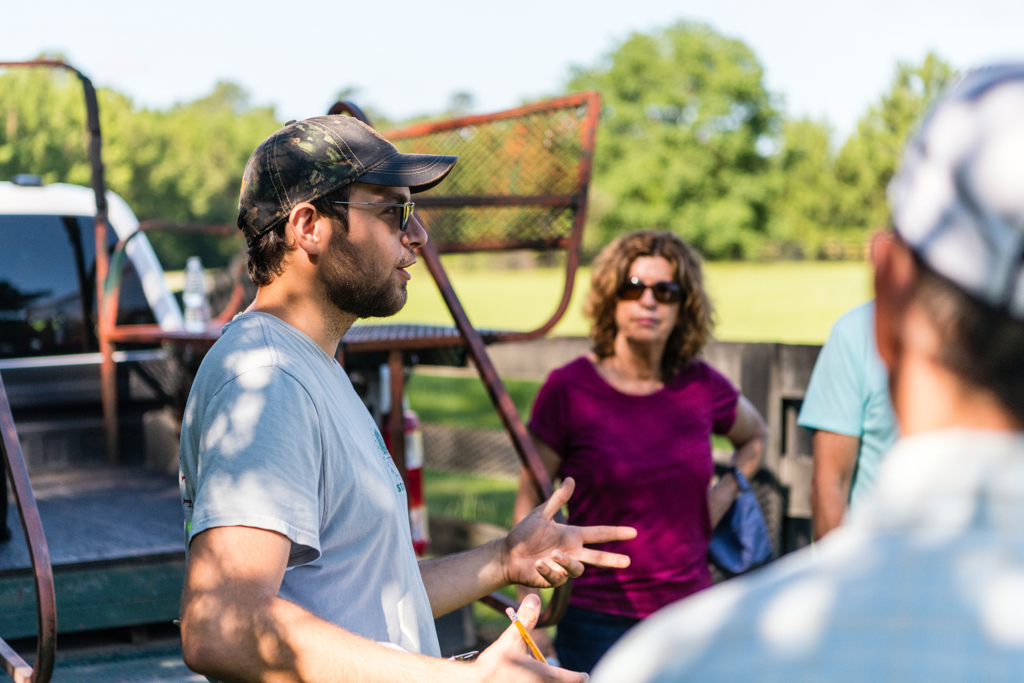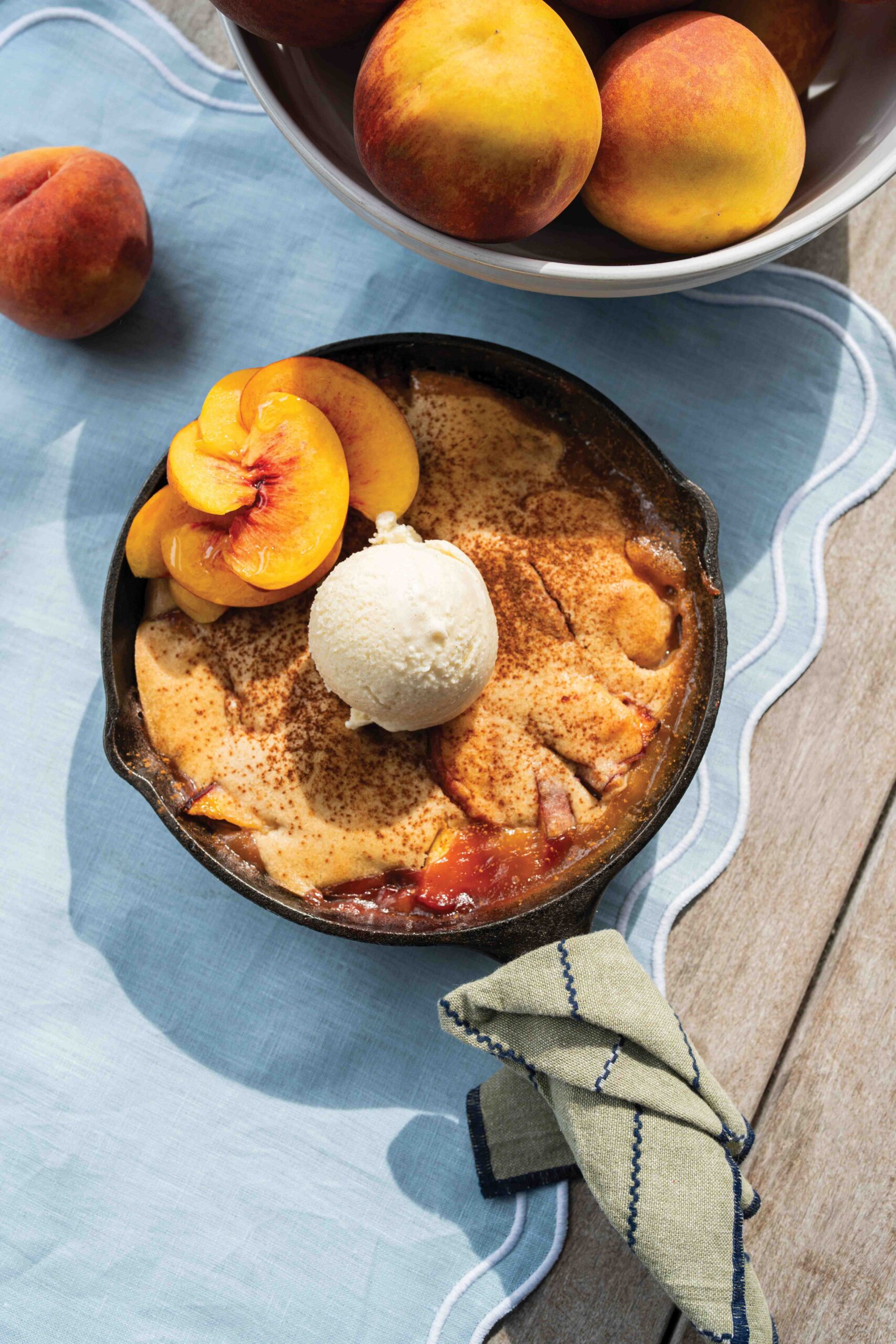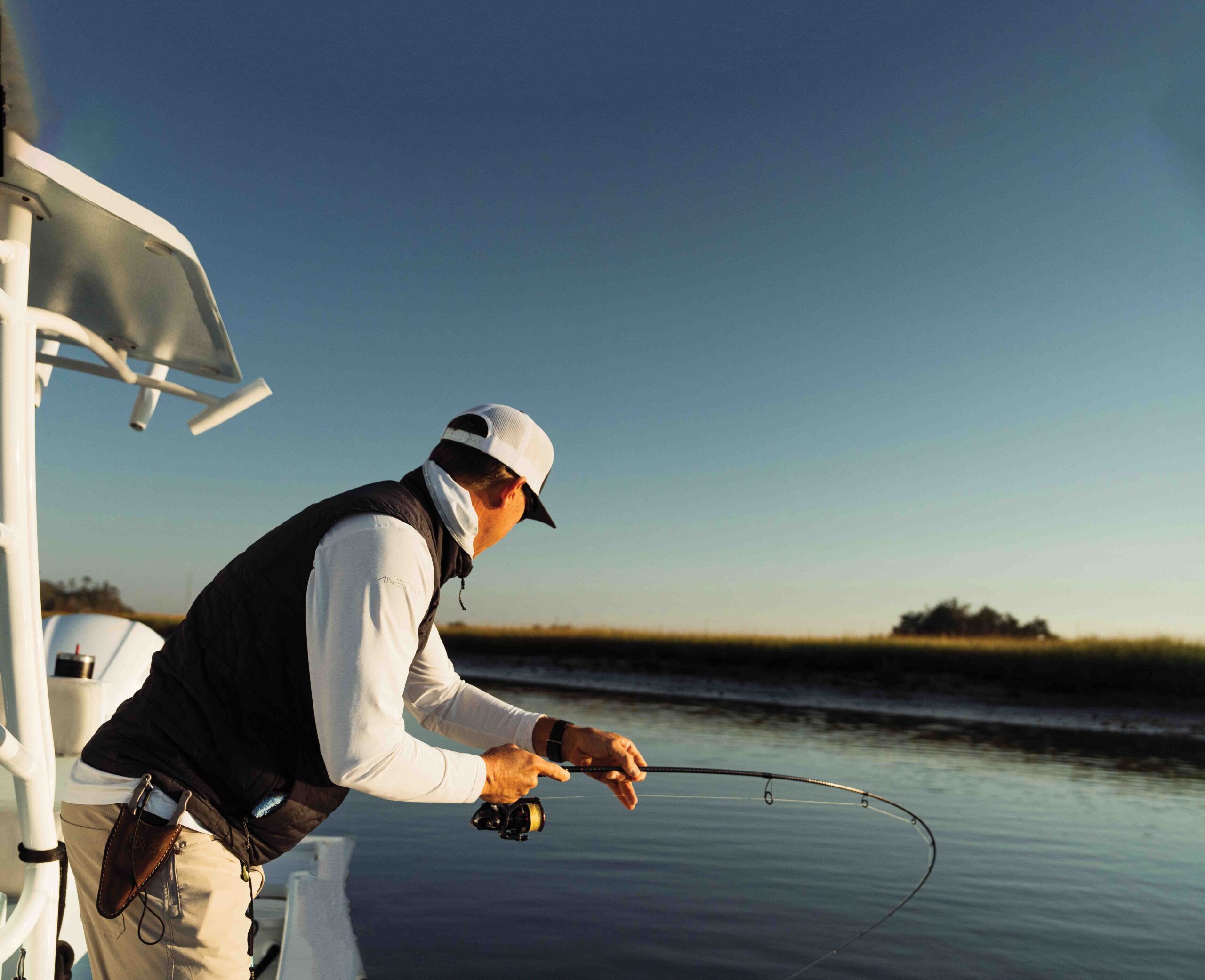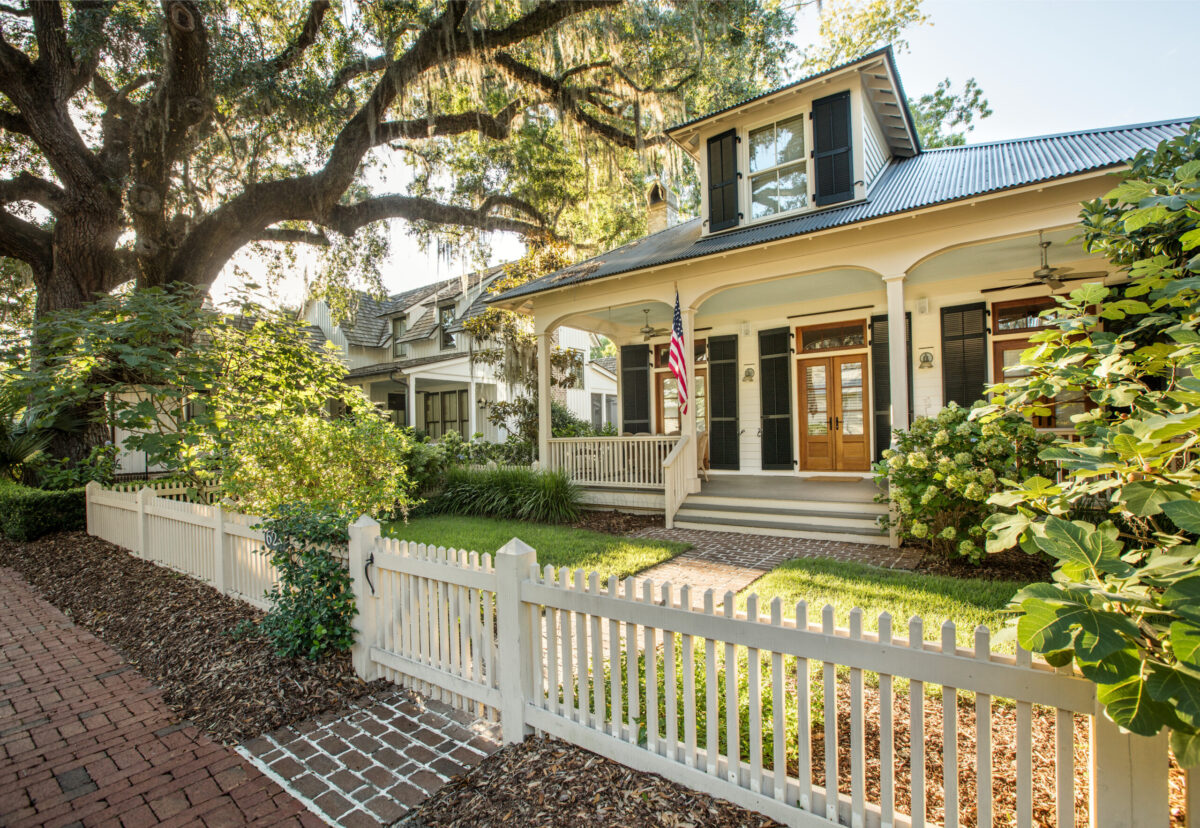Palmetto Bluff Real Estate Company Sales Office
Office Hours
Monday-Friday 9am - 5pm
Saturday 9am - 4pm
Sunday 12 - 4pm
Saturday 9am - 4pm
Sunday 12 - 4pm
Here’s a good drinking game if you hate your liver: Head down the beer aisle of your local grocery store, taking a drink every time you see the increasingly meaningless buzzwords “craft brewed” or “small batch.” For bonus points, chug if you see the phrase “locally sourced.”
Once you’ve sufficiently recovered from what will most likely be the hangover of your life, try the same thing at the liquor store. Odds are good you’ll walk away sober as a judge in church. Your sobriety will be partially due to the fact that the tenants of small batch distilling haven’t entered the spirit realm with quite the same force as they’ve invaded the beer world. At least not yet.
But it is coming, as South Carolina relaxes its draconian liquor laws and ushers in a land rush of craft distillers. Scott Blackwell, the tastemaker behind Charleston’s High Wire Distilling, is at the forefront of this movement, planting his flag in a cozy spot on King Street. Fortunately, Blackwell has an immense respect for the importance of a term that has come to mean so little: Craft.
“I do not want to take the cheap route,” he said. “I know we could produce something cliché like moonshine with pickled pig ears, but I want to do something worth doing. I love what I’m doing and I’m proud of it.”
There’s plenty to be proud of. High Wire started distilling last March before finally opening (in the strictly legal sense) in September. Blackwell had been a homebrewer and a baker for years, but knew that the arcane chemistry and precise science of distilling required a more seasoned hand than his own. You or I might at this point Google “how to make bourbon” and do our best. Blackwell hired Dave Pickerell, former 17-year master distiller for Maker’s Mark.
“He helped with a lot of the chemical stuff we could have spent years stumbling around before finding out the right way to do it,” Blackwell said. With Pickerell’s guidance, Blackwell developed High Wire’s line of spirits. There’s Belonger’s rum, aged six months in Woodford Reserve casks to give it a strong rye whiskey undertone. There’s bourbon whiskey, distilled from heirloom corn grown in North Carolina. There’s also sorghum whiskey sourced from a Mennonite farm in Tennessee; the only sorghum spirit ever produced in the south.
And not to sound too buzzy, but there is in fact a locally sourced spirit: the rhum agricole. (Yes, armchair copy editors out there, that’s rum with an h). The High Wire crew made headlines around the country for their unique venture, which started in a sugar cane field in St. George, SC.
“We were processing it right there in the field. We literally cut it from the ground and put it in press. I put a cup under it and it was just delicious,” Blackwell said. “When it came off the still it was a little wild, a little grassy. Not like grass, like a green banana; a fruity kind of flavor. In the barrel, it will mellow and complement the oak and make it taste even. That would bring like a hay-like quality to it, if you were talking to a wine guy. It will have a vegetal quality to it.”%GALLERY%You’ll notice that Blackwell speaks about the flavor of the rum more than its source. That’s deliberate.
“Local’s great, but local has to taste good,” he said. “It has to be something interesting. There’s corn up the road. Great. Does it taste as good?”
That dedication to flavor borders on the obsessive, and it is evident in every word Blackwell uses in discussing his craft. Nutty. Caramel-y. Bitter. Peppery. Even something as pedestrian as gin gets the gourmet treatment at High Wire.
“We use fresh botanicals, lemon, orange and juniper, and tried to expose as much surface area without burning the botanicals. When we ran it through the still, it was… bright,” he said. Bright is one of the more ambiguous words in the foodie lexicon, but from Blackwell it just makes sense. “The flavors popped so much more than a compound gin where you just get that evergreen flavor.”
This is a guy who grew up in Florida on orange juice straight from the orchards, introduced Ben & Jerry’s to South Carolina, and founded Immaculate Baking, taking home the “Most Outstanding Cookie of the Year in America” award for his Leapin’ Lemon cookie along the way. When he talks about flavor, brother, you’d better listen.
“A lot people use the term grain to glass,” he said. “But, to me, you should be able taste it. I want to taste barley, corn, and rye. That’s the whole reason I’m buying the craft product.”
Head to High Wire Distilling at 652 King Street and sample your own.

Palmetto Bluff’s Moreland Village feels a world away from the more traditional architecture of the iconi...

We are thrilled to introduce the inaugural winners of the Inspiring the Arts Scholarship—three extraordinary young women pursuing their artistic dreams through higher education! Katherine Donahue has been named our first official scholarship recipient, wit...

From handmade jewelry to performance wear, the latest arrivals at Palmetto Bluff’s retail spots capture the season in true Lowcountry style. This summer, the Bluff’s shops are full of fresh finds, carefully chosen by our trusted retailers—including FLOW Galler...

Citizen Science is Thriving at Palmetto BluffDid you know that residents of Palmetto Bluff are playing a vital role in national and global conservation efforts—all from their backyard?Through the Palmetto Bluff Conservancy’s growing Citizen Science programs, c...

In October 2024, Grammy Award-winning musician Clay Ross visited Palmetto Bluff as part of The Arts Initiative's Artist in Residence Program. Through storytelling and song, he explores identity, heritage, and the universal language of sound. By Barry Kaufman ...

Palmetto Bluff Club Executive Chef Beth Cosgrove and Director of Culinary, Chef Rhy Waddington, Cook Up Four Peachy Recipes for a Summer in the South. Is there anything more iconic than a southern peach? A symbol of summer and Southern heritage, the peach car...

Following the tides and angling for redfish in Lowcountry creeks and estuaries with Captains Brian Vaughn and Will Stephens Story by Sandy Lang It is a sunny morning in October and the water is calm and glassy. The silence is punctuated by a gush of breath f...

7 Ways To Upkeep Your Palmetto Bluff Home As spring arrives in the Lowcountry, the change in season brings more than blooming marshlands and sun-drenched afternoons; it’s also a perfect time to refresh and care for your Palmetto Bluff home. Coastal living mea...

When the land speaks, you listen. And at Palmetto Bluff, it spoke to two of golf’s most legendary course designers—Bill Coore and Ben Crenshaw. We invite you to watch our newest video, shot this past winter and featuring Bill and Ben, along with South Street P...

5 Renovations to Increase the Value of Your Lowcountry Home Whether Palmetto Bluff is your full-time residence or a cherished retreat, deciding to sell is never a quick or casual choice. However, when the time does come, you want your home to be as market-rea...
Learn about the Palmetto Bluff Conservancy and how we keep the vision of our land in place.
On land or water, there is an ever-evolving variety of activities.
We do not attempt to independently verify the currency, completeness, accuracy or authenticity of the data contained herein. All area measurements and calculations are approximate and should be independently verified. Data may be subject to transcription and transmission errors. Accordingly, the data is provided on an “as is” “as available” basis only and may not reflect all real estate activity in the market”. © [2023] REsides, Inc. All rights reserved. Certain information contained herein is derived from information, which is the licensed property of, and copyrighted by, REsides, Inc.